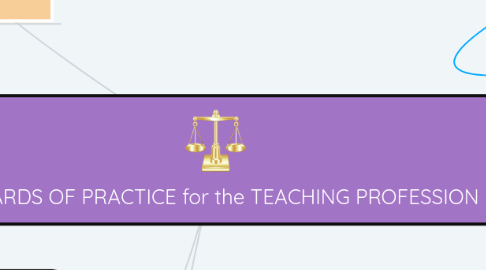STANDARDS OF PRACTICE for the TEACHING PROFESSION
by Ms. Katie

1. Reflecting on student development, learning theory, curriculum, ethics, related policies, and educational research
2. TRUST
3. Ethical Standards
4. INTEGRITY
5. CARE
6. RESPECT
7. Dedicating time to reading articles, newspapers, and books that expand your mind and make you think
8. Allow students to show their learning in a variety of ways, i.e. visually, textually, video, acting, etc.
9. Continually be a role model by sharing your thinking and presenting good behaviour. Also, sho bad behaviour and have students reflect on what you are doing/not doing
10. Promoting choice and access to model fairness and equity in the classroom
11. Choose a variety of texts
12. Differentiated instruction
13. "Education for All"- Document that emphasizes that equitable education is a right for all children
14. Professional Knowledge
15. Professional Practice
16. Ongoing Professional Development
17. Commitment to Pupils and their Learning
18. Schedule 1-on-1 meetings to check in
19. Conduct regular student surveys to discover preference, experiences, and desires
20. Apply professional knowledge and experience to promote student learning
21. Can increase pay grade and open new teaching opporuntites
22. Participating in PD days, enrolling in AQ and BAQ courses, shawoding other classrooms, and learning new skills
23. Teachers promote and participate in the creation of collaborative, safe, and supportive learning communities
24. https://www.oct.ca/members/know-your-college/your-connections
25. www.Quizlet.com
26. https://classroom.google.com
27. www.kahoot.com
28. Online Communities
29. www.teacherspayteachers.com
30. Teachers have shared responsibilities and leadership roles in promoting student success
31. "It takes a village to raise a child"
32. Connecting, sharing, and interacting with other teachers/mentors
33. Keeping current and trained on the resources and technology available
34. Teachers should have ongoing inquiry, dialogue and reflection
35. Leadership in Learning Communities


